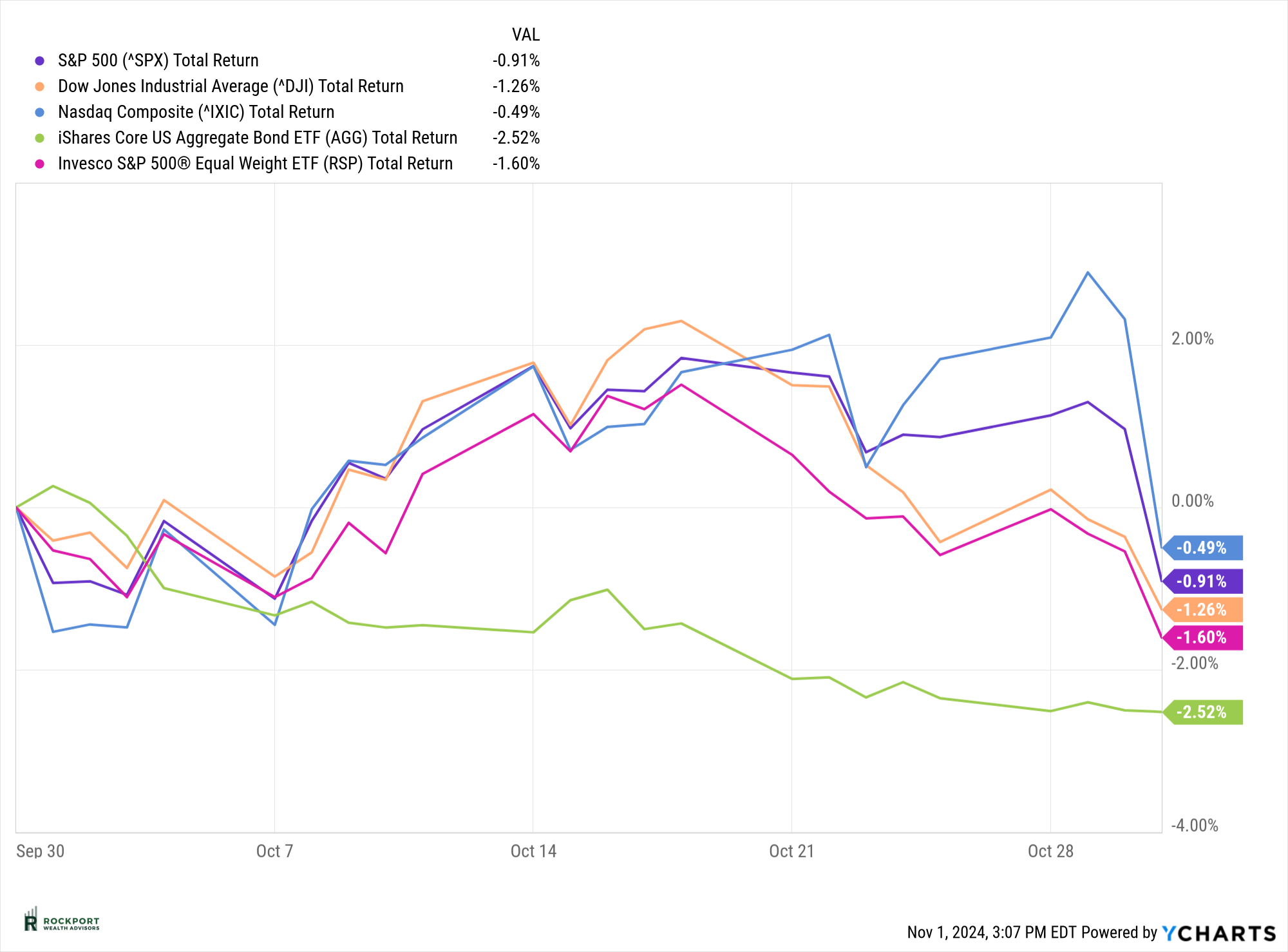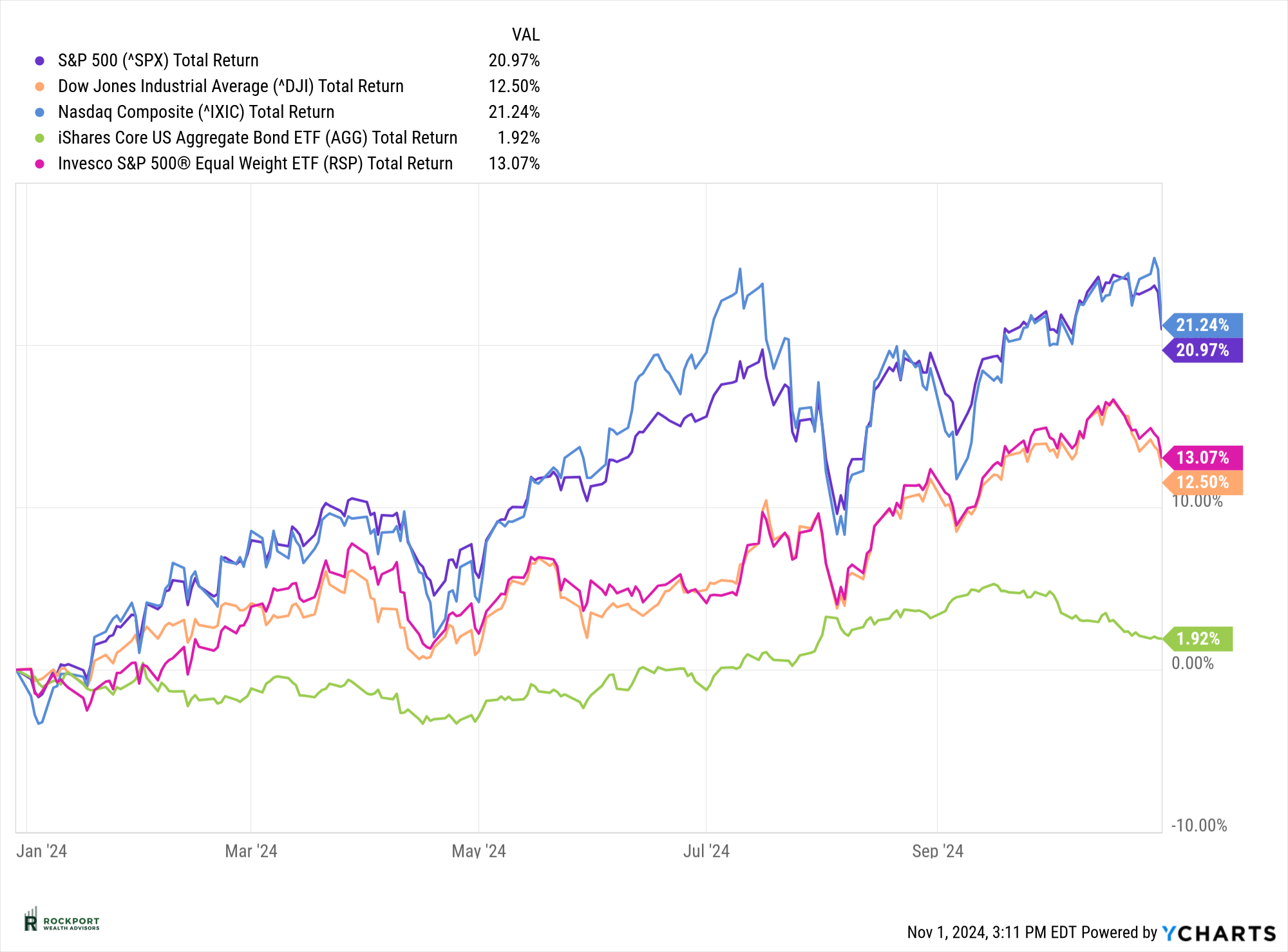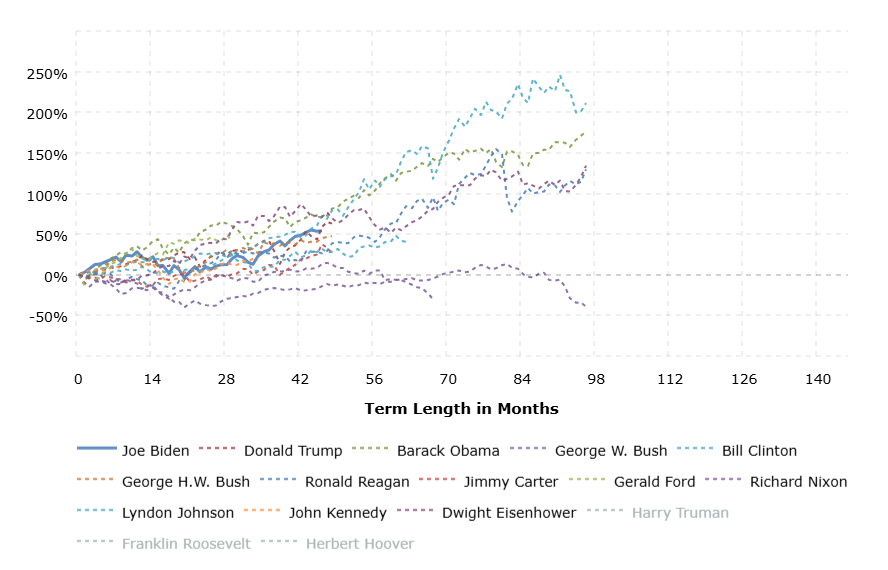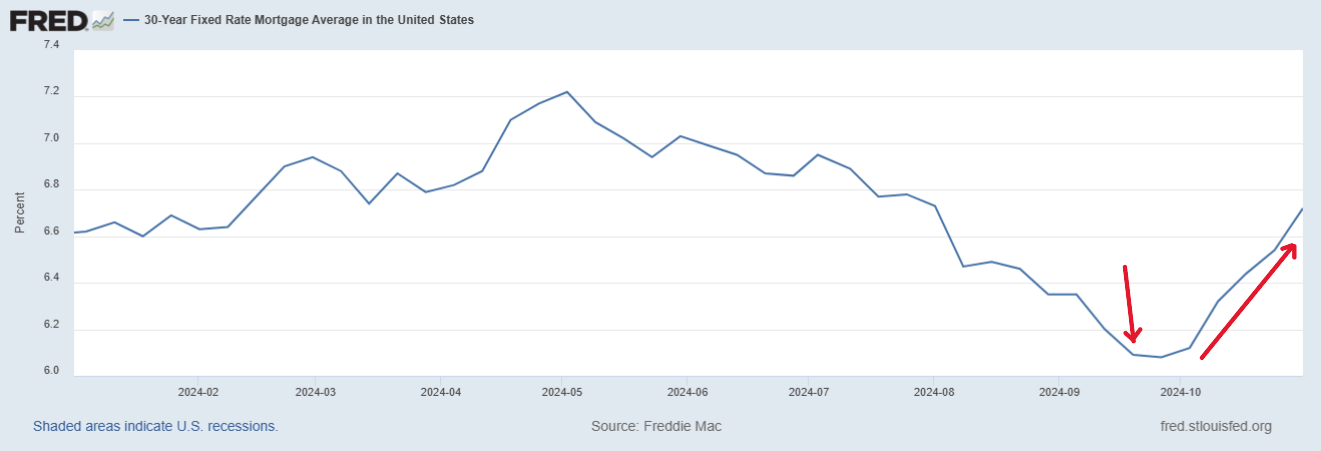
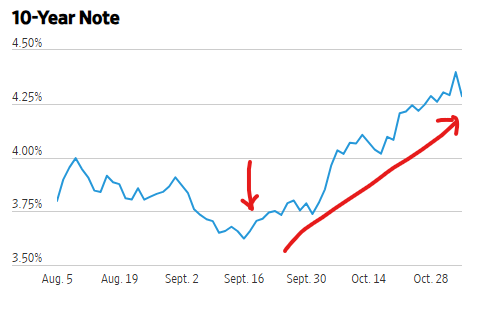
As you read this, Election Day will have passed, and hopefully, so has any uncertainty, with results that were clear and uncontested. Many investors understandably worry about the potential impact of elections on their finances. However, as the chart below illustrates, history shows that stock market performance tends to be positive over a president’s term, regardless of the party in office. In fact, only George W. Bush and Richard Nixon saw negative market returns during their terms. Historically, who holds office has had less impact on the market than factors like interest rates, inflation, and, most importantly, the long-term growth of the economy.
As we assess the current landscape, the winner of this election will face an expensive stock market, ongoing global conflicts, and a Federal Reserve still grappling with inflation, potentially exacerbating it with recent rate cuts. Below, you’ll find charts of two widely monitored stock market valuation metrics: the Buffett Indicator and the Shiller Price-to-Earnings ratio. The Buffett Indicator is nearing an all-time high, well above its peak in March 2000, while the Shiller P/E ratio is also approaching levels last seen in 2000. Given these elevated valuations, we wouldn’t be surprised to see more subdued stock market returns in the coming years. Remember, while high valuations don’t directly cause market declines, they can amplify the severity of a downturn when one occurs.
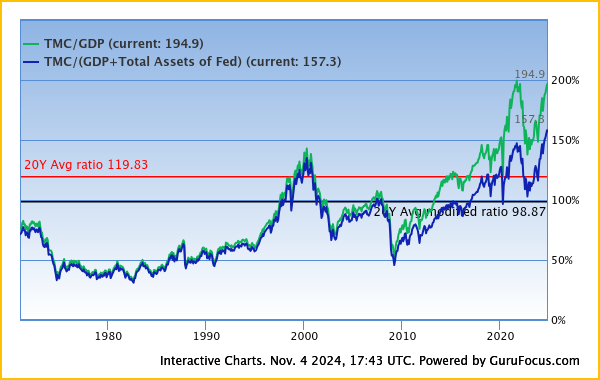
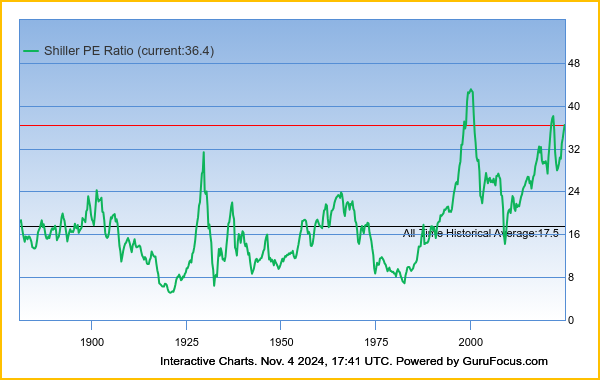
Rockport News
Be Aware, Be Diligent…..Scams to avoid
We will take a break from Tax talk for a few months and focus on some things that EVERYONE should be aware of. How to be aware of and hopefully avoid the different types of scams out there. We will start with Phishing.
Phishing is a scam in which the scammer poses as a legitimate, trusted source, in order to trick you into providing sensitive data such as your username, password, banking details or social security number. The scammer then uses the information to steal money or commit identity theft. Phishing attacks can also give scammers access to your computer or network to install malware or ransomware.
Phishing scams most commonly start with a fake email that appears to come from the trusted source but can also start with a text message (also called “smishing”) or telephone call (also called “vishing”) or a social media message.
If someone contacts you asking for your personal information — e.g., social security number, credit card number, bank account info — do not give it. And be careful of clicking on suspicious links in email messages.
If you are asked to log in after clicking a link in an email, be careful. You may want to verify that you have reached the real login site by instead logging into the website separately outside of the email.
As always, if you have any questions on anything we have talked about here or anything else that is on your mind, please feel free to reach out.

